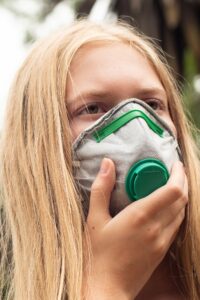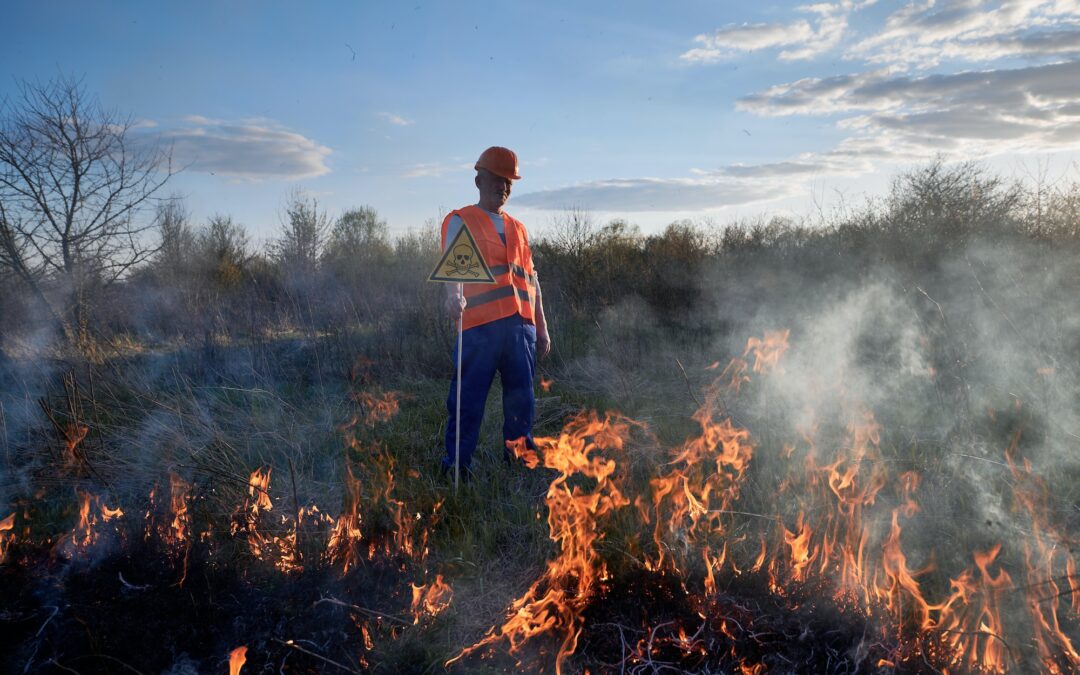The world around you may be affecting your health. Keep reading to learn about the connection between climate change and cardiovascular health.
Believe it or not, climate change is not just affecting the weather around you but also your heart health. In fact, air pollution (a major cause of climate change) as well as heatwaves and wildfires are putting people’s health at risk. The following is an overview of the connection between climate change and cardiovascular health – and what you can do about it.
Air Pollution
 Air pollution leads to 1 in 5 deaths from cardiovascular disease worldwide and long-term exposure can lead to heart attack, cardiac arrest, coronary heart disease, abnormal heart rhythms, heart failure, and stroke. Breathing in very small air pollution particles can damage your blood vessels, increase blood pressure, and more. You can easily check the air quality near you by looking up the Air Quality Index (AQI) in your area online.
Air pollution leads to 1 in 5 deaths from cardiovascular disease worldwide and long-term exposure can lead to heart attack, cardiac arrest, coronary heart disease, abnormal heart rhythms, heart failure, and stroke. Breathing in very small air pollution particles can damage your blood vessels, increase blood pressure, and more. You can easily check the air quality near you by looking up the Air Quality Index (AQI) in your area online.
Heatwaves
Climate change has caused an increase in the frequency and intensity of heatwaves, which are unusually high temperatures that occur for at least three days in a row. They can be dangerous for individuals with existing medical conditions. Heatwaves increase the risk of dehydration and push your heart to work harder to keep you cool.
Drink plenty of water to stay hydrated and avoid alcohol, sugary drinks, and too much caffeine. While you may find them tasty, they actually increase your chances of getting dehydrated. You should also find ways to keep yourself cool.
For example, you should stay indoors and use an electric fan, take a cool shower, or spray cool water on yourself every hour. If you’re heading outdoors, make sure you stick to the shade as much as possible and wear loose, light-colored clothing. Also, try to reduce your level of physical activity if it’s hot.
Wildfires
Because of climate change, wildfires are becoming more common and can lead to air pollution. Not only that, but smoke exposure can put increased stress on the heart and can be dangerous for people with heart conditions.
Wildfire smoke can also increase the risk of cardiac arrest or heart attacks, and cause chest pain, difficulty breathing, palpitations, fatigue, and more. While not always possible, try to stay indoors and keep your windows and doors shut during a wildfire. You should also switch your air conditioning to recycle or recirculate so it helps filter out harmful air particles from the outside.
Taking Care of Your Heart
 As you can see, climate change can affect your heart health in several ways, so it’s important that you protect your heart. Do your best to stay indoors when necessary so you can avoid exposure to harmful particles.
As you can see, climate change can affect your heart health in several ways, so it’s important that you protect your heart. Do your best to stay indoors when necessary so you can avoid exposure to harmful particles.
You can also strengthen your heart health by practicing healthy habits like eating healthily, exercising regularly, and taking supplements like Circulation Boost. Its ingredients promote circulation, blood pressure health, energy levels, and more. Give your heart the support it deserves by being aware of the climate around you and by taking Circulation Boost.

